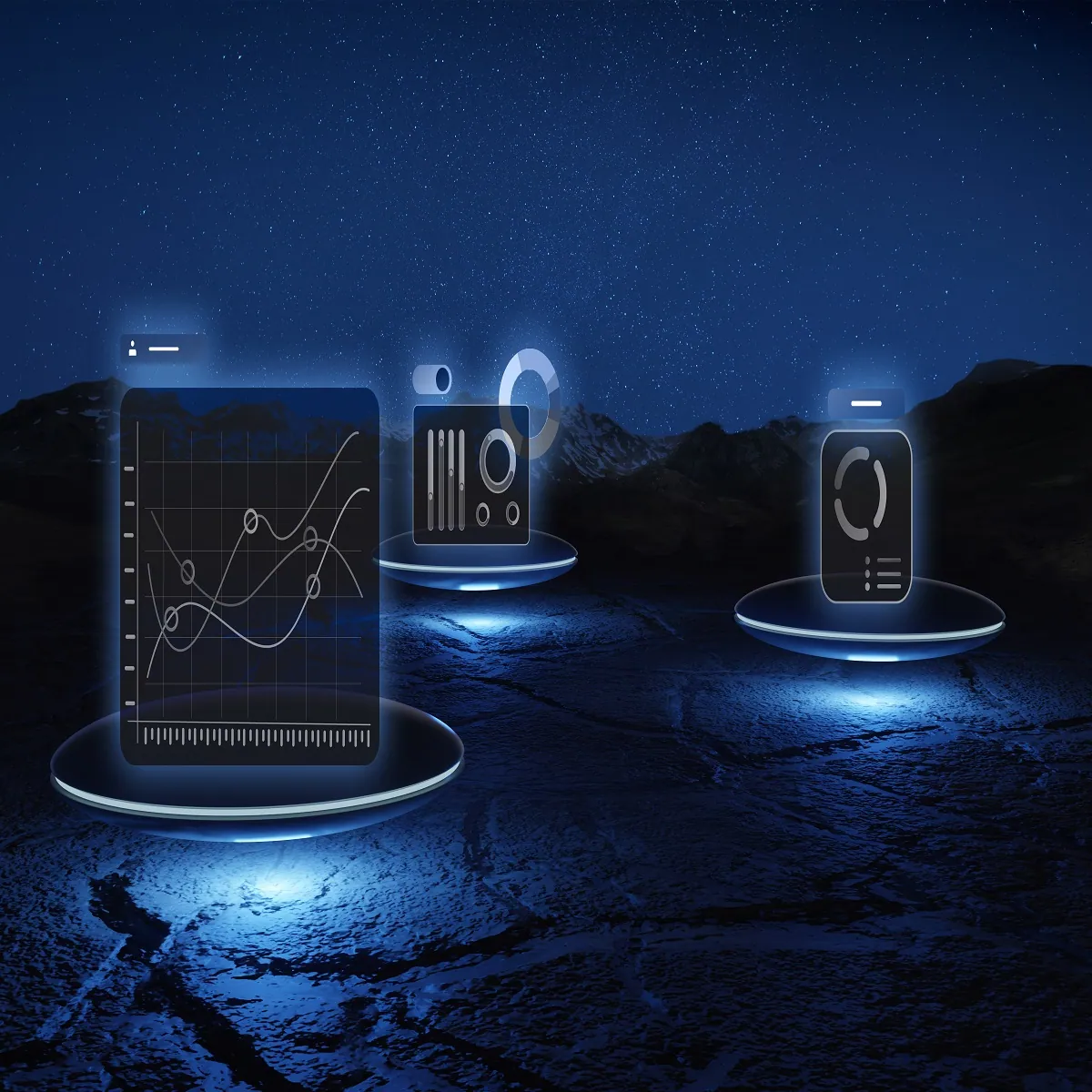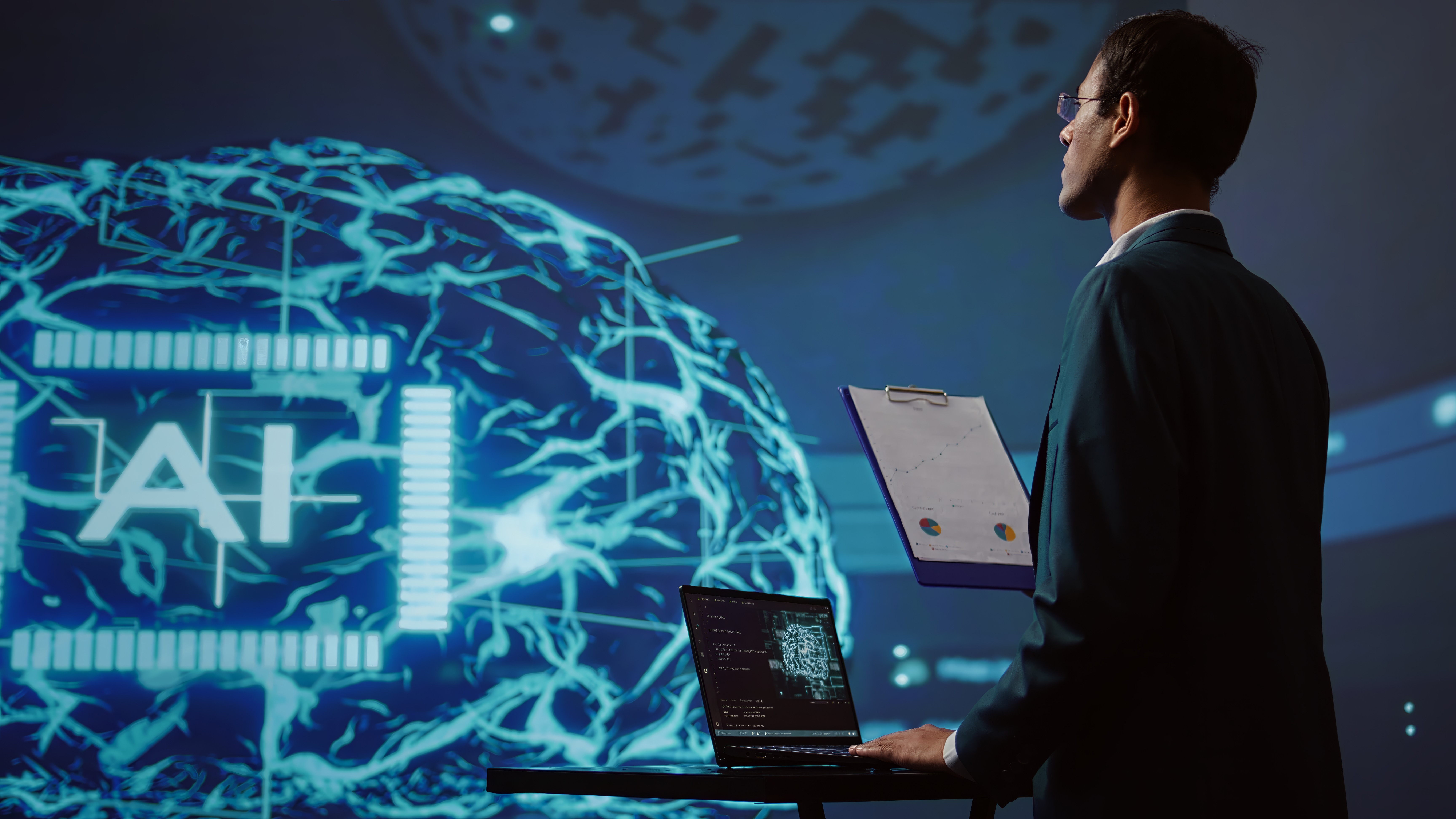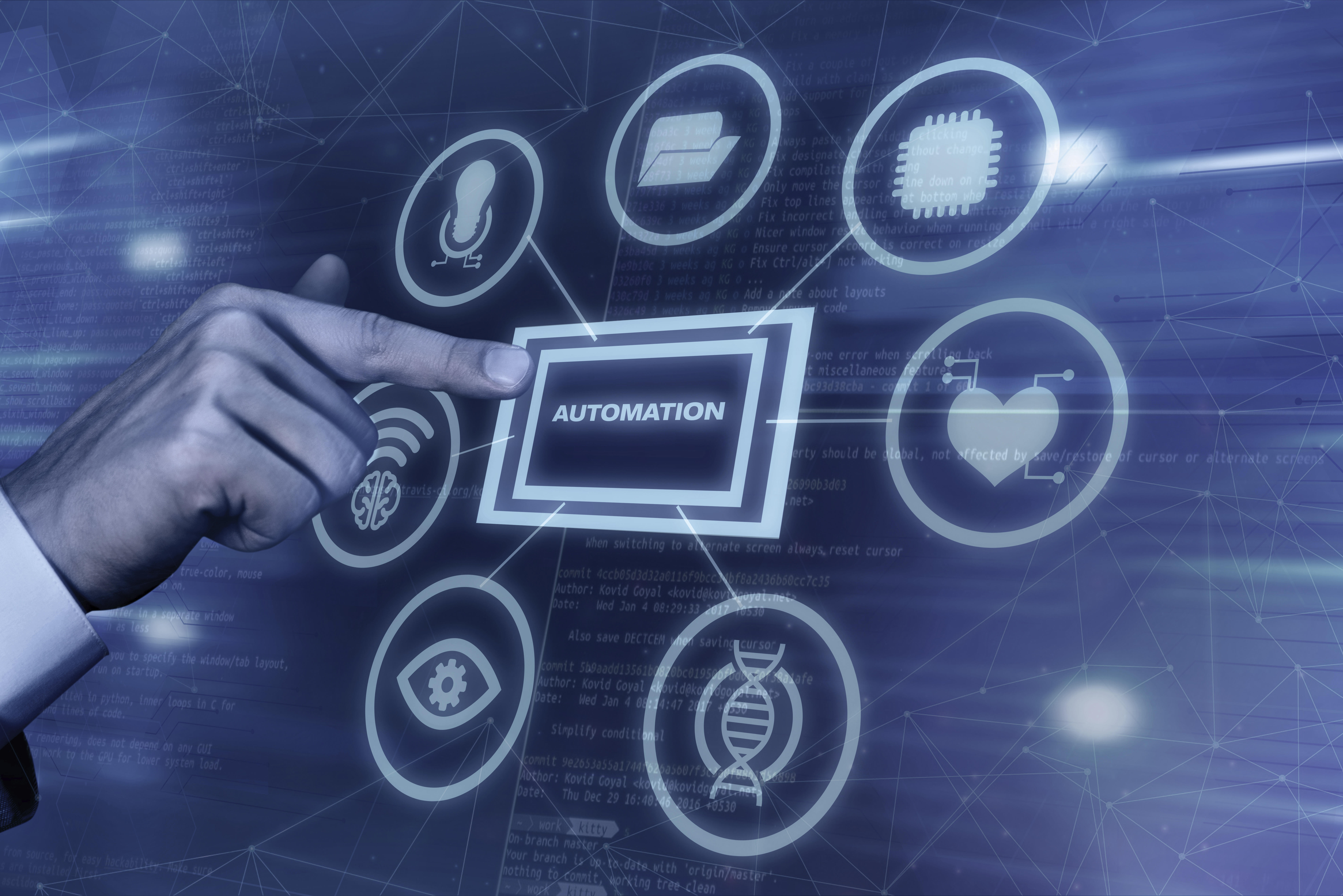Stock Market Prediction with AI: Tools, Techniques, and Accuracy
How is AI Changing the Stock Market?
Artificial Intelligence (AI) is the branch of computer science that enables machines to mimic human intelligence. It involves programming computers to perform tasks such as learning from data, recognizing patterns, making decisions, and improving over time without being explicitly programmed for each task. In the context of finance, AI leverages techniques like machine learning, natural language processing, and predictive analytics to interpret vast amounts of structured and unstructured data.
These technologies allow machines to understand market movements, investor behaviour, financial news, and even social media sentiment all in real time. As computing power and access to big data continue to grow, AI is becoming more accurate and more deeply integrated into investment strategies, making it an essential tool in the modern financial ecosystem.
Why is it Transforming the World of Trading and Investment?
The stock market operates on a constant stream of information that can change the direction of prices within seconds. Traditional human-led trading relies heavily on experience and time-consuming analysis, which may not keep up with the speed of today’s markets. AI, however, can process huge volumes of data, identify complex patterns, and adjust strategies automatically. This ability allows it to react faster than any human, often giving AI-driven trading systems a competitive edge. Whether it's forecasting stock prices, detecting fraud, or optimizing portfolios, AI provides a smarter, faster, and more adaptive approach to investing.
Key Benefits of Using AI in the Stock Market
- Data-Driven Decisions: AI analyses massive data sets instantly, offering insights that go beyond human capability.
- Reduced Emotional Bias: It eliminates impulsive decision-making driven by fear, greed, or panic.
- Speed and Efficiency: Automates trading processes and ensures timely execution of trades.
- Personalized Insights: Customizes recommendations based on user goals, market conditions, and risk preferences.
- 24/7 Monitoring: Constantly watches global markets, enabling proactive responses to emerging trends.
In summary, ai in the stock market is revolutionizing how trading decisions are made — combining intelligence, automation, and speed to shape the future of finance.
How Does AI Work in the Stock Market?
Artificial intelligence in the stock market relies heavily on diverse data sources, not just numerical figures The systems analyse a wide range of sources, including historical stock prices, financial statements, breaking news, earnings reports, analyst ratings, social media sentiment, and even global events. This vast pool of structured and unstructured data allows AI algorithms to form a holistic view of market conditions. For example, a sudden spike in negative tweets about a company might signal potential stock decline, prompting an AI system to reassess its position. By continuously ingesting new data, AI models become smarter and more responsive to changing market dynamics.
AI vs. Traditional Analysis Methods
Traditional stock market analysis relies on human expertise, technical indicators, and fundamental metrics like P/E ratios or earnings per share. While effective to some degree, these methods are often slow and influenced by human emotion or bias. AI, on the other hand, operates purely on logic, speed, and statistical accuracy. It processes information far faster than a human can and uncovers hidden relationships in the data that conventional models might overlook. Where traditional methods may focus on limited data inputs, AI considers hundreds or thousands of variables simultaneously, offering a more comprehensive outlook.
The Role of Machine Learning in Detecting Patterns
Machine learning, a core branch of AI, is especially powerful in identifying patterns that indicate potential stock movements. These algorithms learn from past data, adapt to new trends, and refine predictions with time. For example, by analysing past price fluctuations alongside market sentiment and trading volume, machine learning models can forecast future price trends or detect early signs of market volatility. This capability plays a crucial role in stock market prediction AI, enabling traders and investors to make faster, more informed, and often more profitable decisions.
What Can AI Really Predict in the Stock Market?
AI is incredibly powerful, but it isn’t a crystal ball. It can detect patterns, analyse trends, and make data-driven forecasts based on historical and real-time data. AI excels at predicting short-term movements, identifying anomalies, and flagging potential trading opportunities by crunching thousands of variables far beyond human capacity. However, it can't predict the future with 100% certainty. Unexpected events like political unrest, natural disasters, or sudden regulatory changes can disrupt markets in ways even the smartest algorithms can’t foresee. AI operates on probabilities, not guarantees.
Real-World Use Cases
AI is already transforming trading floors and investment platforms across the globe. Hedge funds and asset managers use AI to develop algorithmic trading strategies that respond to market conditions in milliseconds. Robo-advisors rely on AI to create and rebalance personalized investment portfolios for users. News sentiment analysis tools use natural language processing to scan headlines and social media posts, adjusting market outlooks accordingly. High-frequency trading (HFT) firms employ AI to execute thousands of trades per second based on minute price shifts. These real-world examples show how AI enhances decision-making rather than replacing it.
Myths vs. Reality
Many believe that AI can consistently “beat the market” or generate massive returns with little to no risk a myth that often leads to unrealistic expectations. In reality, AI tools are only as good as the data and models behind them. Poor-quality data or flawed algorithms can lead to inaccurate predictions. Additionally, AI models must be continuously updated to remain effective in changing market environments.
While stock market prediction AI offers significant advantages in speed, efficiency, and data analysis, it should be seen as a powerful assistant not a fortune-teller. Understanding its limitations is key to using it wisely.
What are the Top Tools and Platforms for AI-Based Stock Market Prediction?
Getting started with AI in stock trading doesn’t require coding skills or deep technical knowledge. Many platforms now offer intuitive, user-friendly interfaces designed specifically for beginners. Tools like TrendSpider, Tickeron, and Trade Ideas use AI to help users analyse charts, spot trends, and automate strategies. These platforms come with visual dashboards, drag-and-drop features, and educational resources making it easier for first-time users to explore AI-powered predictions without getting overwhelmed.
Key Features to Look For
When choosing an AI tool for trading, look for features that add real value to your analysis and decision-making process.
- Backtesting allows you to test strategies using historical data to see how they would have performed in the past.
- Pattern detection helps identify recurring setups like head-and-shoulders or bullish flags automatically.
- Real-time alerts notify you the moment your conditions are met whether it’s a price breakout or a news-based sentiment shift.
Other useful features may include predictive modelling, portfolio optimization, and integration with broker accounts for automated execution.
Free vs. Paid Options
You don’t need a large budget to start exploring AI in the stock market. Some tools offer free plans with limited access to features perfect for beginners experimenting with basic strategies. For example, Yahoo Finance Premium and FinViz provide some AI-backed insights at no cost. On the other hand, paid platforms like MetaStock or QuantConnect offer advanced analytics, data feeds, and deeper customization for professional traders.
Whether you're monitoring artificial intelligence stock price today or developing your own strategy, the right platform can help you trade smarter not harder with the power of AI.
How Can you Use AI in the Stock Market?
Before you begin using AI for trading, it’s essential to define your goals. Are you interested in day trading, where you make quick trades throughout the day to profit from small price movements? Or do you prefer long-term investing, holding assets for an extended period to benefit from long-term growth? Your goals will influence the AI tools you need. Day traders require platforms that offer real-time data analysis, pattern recognition, and automated trading, while long-term investors benefit from tools that focus on market trends, financial health of companies, and economic indicators over time.
Selecting the Right AI Platform
The right AI platform can greatly impact your trading experience. For active traders, platforms like Trade Ideas and MetaStock are great choices, offering features such as real-time stock tracking, predictive analysis, and automated trading. For long-term investors, platforms like Morningstar or Zacks Investment Research focus on providing comprehensive market analysis and forecasts. When choosing an AI platform, ensure it aligns with your trading goals and offers the features that best suit your needs, whether that’s speed and automation for short-term trades or deeper analysis for long-term strategies.
Running Predictions, Backtesting Strategies, and Making Decisions
Once you’ve chosen your AI platform, you can start using it for AI in the stock market predictions. These platforms use vast amounts of data, including historical trends and market sentiment, to forecast potential stock movements. Backtesting is an important step it allows you to simulate your strategies using past data to see how they would have performed under similar market conditions. After refining your strategy through backtesting, you can make data-driven decisions, optimizing your trades and portfolio management for better outcomes in both the short and long term.
What is the Accuracy of Stock Market Prediction AI?
The accuracy of stock market prediction AI is influenced by several factors. The quality of the data used is critical AI models rely on historical prices, economic indicators, and market sentiment to make predictions. Inaccurate or incomplete data can lead to flawed forecasts. Additionally, market volatility, external events (like political instability or natural disasters), and sudden changes in market sentiment can affect AI’s predictions. AI models are trained to detect patterns based on past behaviour, but they may struggle with predicting unprecedented events. The effectiveness of the algorithm itself also plays a role, as more sophisticated machine learning models generally perform better than simpler models.
Case Studies and Data-Backed Insights
Several case studies have shown the effectiveness of AI in stock market prediction. For instance, hedge funds like Two Sigma and Renaissance Technologies leverage AI to analyse vast data sets and generate accurate predictions, yielding significant returns. According to a study by JP Morgan, machine learning models used for stock prediction were able to outperform traditional models in identifying market trends, especially when real-time data, such as news sentiment, was incorporated. Another example comes from Kavout, an AI-powered investment platform, where the “Kai Score” has successfully identified top-performing stocks, backed by extensive data analysis and predictive algorithms.
Combining Human Intuition with AI Suggestions
While AI can significantly enhance stock market predictions, it should not be relied upon solely. Combining human intuition with AI insights is a powerful approach. Human traders bring in-depth market knowledge, experience, and emotional intelligence to the table, filling gaps where AI might falter. For example, an AI system might spot a potential trend but may not fully understand the underlying human factors driving that trend. By integrating AI suggestions with a trader’s judgment, investors can benefit from both data-driven precision and intuitive decision-making, improving their overall success in the market.
How Do Artificial Intelligence Tools Track Stock Prices in Real-Time?
AI tools designed for stock price monitoring are built to track and analyse market movements as they happen. These platforms collect and process vast amounts of data from various sources, including live stock prices, financial news, social media sentiment, and global market trends. They use algorithms to analyse this data in real time, making instant decisions based on patterns, price fluctuations, and news triggers. For example, if a stock shows signs of a sharp price increase or decrease, the AI system can react by adjusting predictions or alerting users to potential opportunities.
How Do they Track, Analyse, and Update Predictions Instantly?
Real-time AI tools are constantly gathering new data and adjusting their predictions accordingly. Through continuous monitoring, these platforms can detect even the smallest price movements and predict future trends with impressive accuracy. Machine learning models are often used to recognize historical patterns and identify recurring trends. As soon as new data becomes available — whether it’s an earnings report, market shift, or geopolitical news — the AI models update their forecasts instantly. This fast-paced adaptability allows traders to stay ahead of market changes, making decisions based on the most current information.
Examples of Live AI-Based Stock Monitoring Platforms
Several live AI-powered platforms excel at real-time stock price monitoring and predictions. Trade Ideas uses advanced algorithms to scan the market and make automated trades based on pre-set conditions. Tickeron offers real-time trend analysis and pattern recognition, providing investors with immediate insights and alerts. Another powerful tool is Kavout, which uses AI to track and predict stock performance with the help of its proprietary Kai Score, a real-time indicator of stock potential. Platforms like these allow traders to benefit from artificial intelligence stock price today and make more informed decisions in a rapidly changing market.
What are the Challenges and Ethical Considerations in AI-Based Trading?
One of the main challenges in AI-based trading is ensuring the quality and integrity of the data used by algorithms. AI models depend on vast amounts of data to make predictions, and if the data is incomplete, inaccurate, or outdated, the predictions can be flawed. Additionally, bias in the data can significantly impact the accuracy and fairness of AI decisions. For instance, if an AI system is trained on data that disproportionately represents one segment of the market or ignores certain factors, it may lead to biased trading strategies. This could result in suboptimal or even unethical outcomes, particularly for investors relying solely on AI predictions.
Over-Reliance and "Black Box" Problems
Another concern with AI in trading is the over-reliance on automated systems. While AI can process vast amounts of data and execute trades quickly, it is not infallible. Relying too heavily on AI without human oversight can be risky, especially during unforeseen market events or sudden volatility. Additionally, many AI systems operate as "black boxes," meaning that their decision-making process is not transparent. Traders may not fully understand why an AI model is making specific predictions, which can be problematic when it comes to accountability and trust. This lack of transparency can cause hesitation for investors who are unsure about how decisions are being made.
Regulatory and Ethical Questions
AI-based trading also raises significant regulatory and ethical questions. Governments and financial regulators are still catching up with the rapid growth of AI in the stock market. Ensuring that AI systems comply with existing laws, such as those related to market manipulation or insider trading, is a major concern. Furthermore, ethical issues arise when AI algorithms are used to exploit market inefficiencies or manipulate stock prices to benefit specific investors. This creates a need for new regulatory frameworks that address the challenges and risks associated with AI in trading while ensuring fair and transparent markets.
Conclusion
Leveraging artificial intelligence in the stock market offers significant advantages by providing real-time predictions, analysing vast datasets, and identifying market trends. Stock market prediction ai can be a powerful tool for investors, but it should not replace human judgment. It’s crucial to balance AI insights with personal research and market knowledge. Keeping an eye on artificial intelligence stock price today and continuously refining your skills through ai in the stock market courses can help you stay informed and make smarter investment decisions. Use AI responsibly, and it will enhance your trading strategies.








